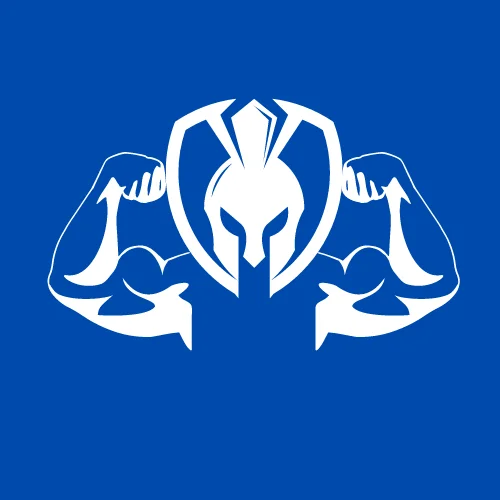Complete Nutrition Guide for Beginner Bodybuilders: Fueling Workouts with Proteins, Carbs, and Healthy Fats
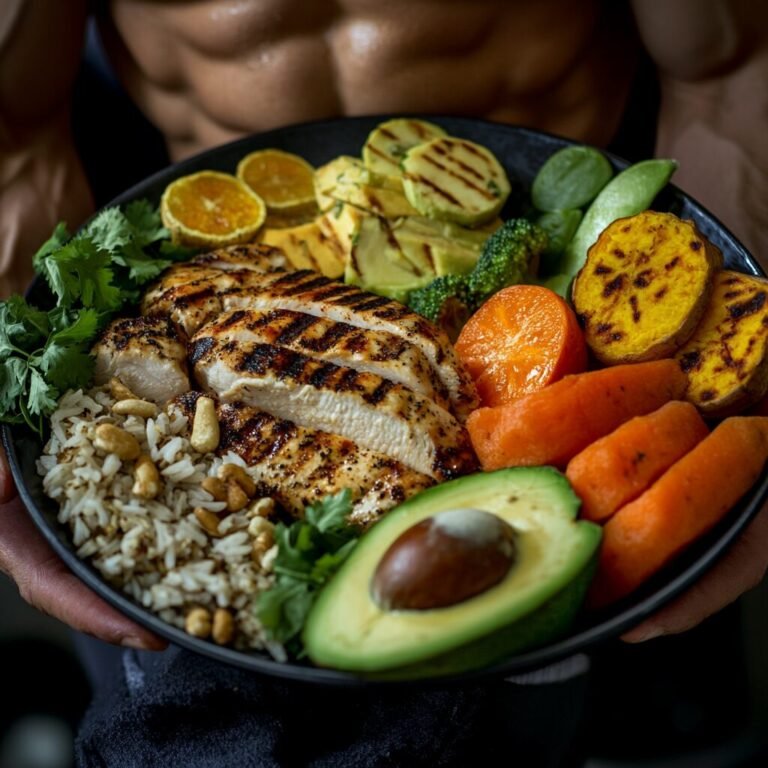
Nutrition is a crucial but often overlooked part of bodybuilding and fitness. Just like a high-performance engine needs quality fuel, your muscles need the right foods to grow and recover. A good diet isn’t just an add-on to your workout—it’s essential for building muscle and recovering after training. Every meal you eat fuels your strength and resilience, and this Nutrition Guide for Beginner Bodybuilders will help you get started.
This roadmap covers everything an individual needs to know about macronutrients, meal prep strategies, and hydration techniques. Understand how proteins build muscles, carbohydrates provide energy, and healthy fats support recovery and hormone balance. You’ll find some very usable meal prep tips and some easy, nutrient-rich recipes to help you along your fitness journey. Now, let’s get ready to use this knowledge and fuel our gains with this Nutrition Guide for Beginner Bodybuilders article.
Understanding Macronutrients
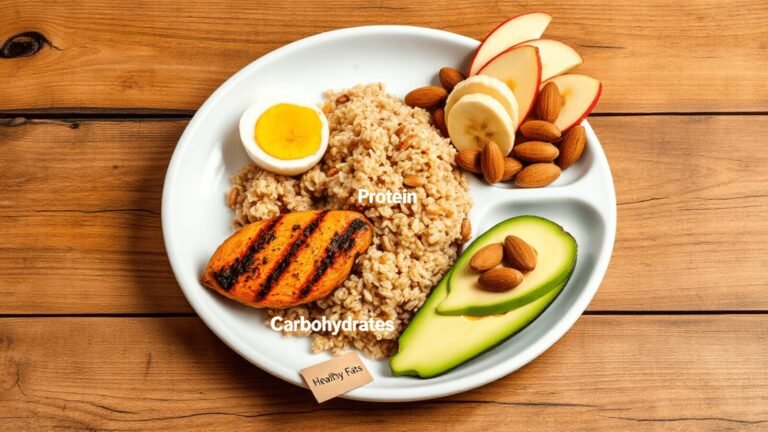
In the case of fitness and bodybuilding, macronutrients are the three key products that our diet should be composed of: proteins, fats, and carbohydrates. All are important in fueling workouts and developing muscles. Proteins repair and rebuild muscles after intensive workouts. Protein is found in lean meats, eggs, dairy products, legumes, and nuts.
Many view fats wrongly, as if the fats are really important in the production of hormones and proper nutrient absorption. Wholesome fats from sources like avocado and olive oil keep your body running as it should, even under pressure. Carbohydrates give you the energy to power you through grueling training sessions, and whole grains, fruits, and vegetables ensure consistent energy.
The recommended percentages are:
- 40-50% carbohydrates for energy needs.
- 30-35% protein requirement to build body muscles.
- The remainder is for healthy fats.
However, these ratios are not set in stone and are changing depending on your activity levels and personal inclinations. Most important of all, many people practice different things as they try to discover what suits them most. When logging your meals and snacks, you will be able to note the type of macronutrient distribution, which enables improved energy and recovery.
With knowledge of specific macronutrients and how they affect fitness, you can create meals that boost both performance and health. Thanks to the Nutrition Guide for Beginner Bodybuilders you can learn how to incorporate protein, beneficial carbohydrates, and good fats into your diet, laying strong foundation for your nutrition plan.
Nutrient: Protein-Muscle Building Block
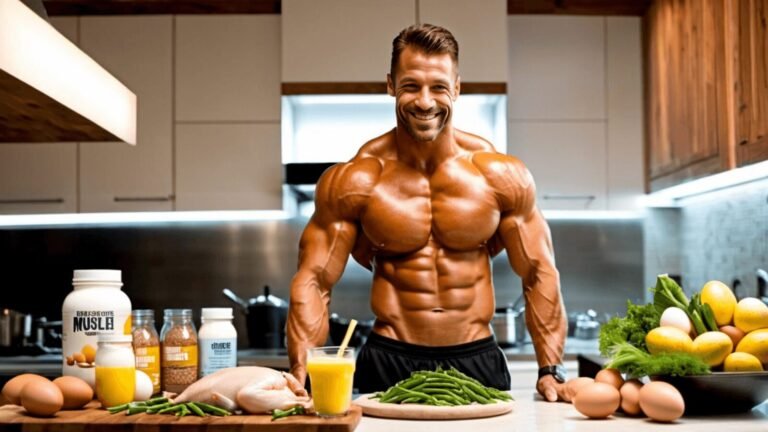
Protein is highly important for the development and restoration process of muscles. This is due to the fact that protein is constituted from amino acids which are the formations of muscles. Ideal sources of lean protein are chicken breast, turkey breast, and beef; fish like salmon and tuna for fish; plant sources of protein include quinoa, lentils, and beans; and raw or low-fat dairy products, like plain Greek yogurt and low-fat cottage cheese. Every source contains other nutrients that are beneficial to muscle growth and the health of the body in general.
Ways to easily up your intake: Match meals to goals; for breakfast, one must have a heavy omelet loaded with vegetables and cheese. Every egg one uses adds to the protein. Snacks can be helpful too-add nuts or seeds to trail mix or have them with cottage cheese for a crunchy and creamy treat. These few adjustments will up the daily protein intake without hampering taste.
There is also timing in consuming your protein, especially around your workout sessions. You should have a meal or snack rich in protein within 30 minutes after the session, when the muscles are in dire need. Taking proteins before workout helps to sustain your energy so you can do the best and reach your goals.
Emphasize high-quality protein sources; secondly, find a way to include them into your everyday routine. This would be the most effective for strength building and recovery after training. Welcome this important macronutrient to feed your gains.
Carbohydrates: Your Source of Energy
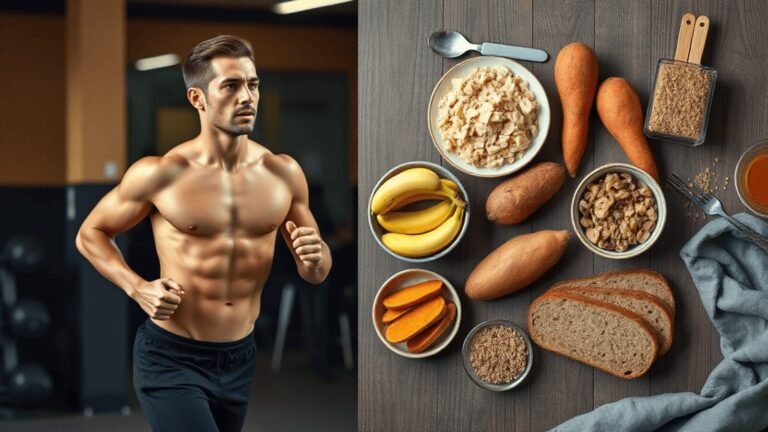
Carbohydrates are very important for working out because they are the main source of energy for both endurance and strength training. They also improve muscle performance during those final reps or sprints and help restore glycogen storage for quicker recovery after intense workout sessions.
There are 2 kinds of carbohydrates: simple and complex. For instance, simple carbohydrates found in sugary foods like candy and soda may give you a quick energy boost, but the energy fades just as fast. Whole grain products, beans, vegetables, and other carbohydrates provide sustained fuel for longer workouts or exercises. In fact, getting complex carbs before weight training or a jog can hold glycogen constant in the course of the exercise.
As for the time, carbohydrates should be consumed 30-60 minutes before exercising. For example, a warm cereal dish such as oatmeal with banana and honey. Consuming something like sweet potatoes with grilled chicken or quinoa with vegetables after exercise helps to replace glucose stores and also helps muscles recover.
Lastly, the kind of carbs that you take determines the outcome you will achieve during your workout. By knowing when to eat quick energy sources, healthier options, proteins, and fats, you can better support muscle growth and recovery. Understanding how carbs fit into your nutrition plan can boost your training results.
Healthy Fats: Fueling Hormones and Recovery
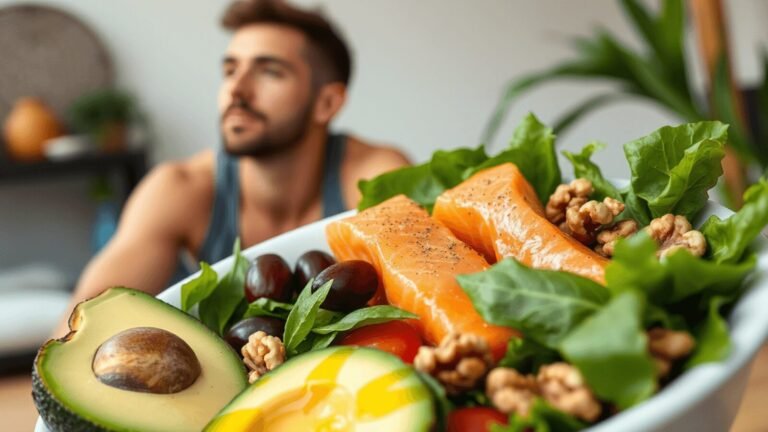
Healthy fats are very important for hormone production and recovery; they act like the oil that keeps your body running smoothly. Besides, they support your cells, enhance the absorption of nutrients, and provide energy when exercising rigorously. For instance, we have omega-6 and omega-three fatty acids that are helpful in regulating the body’s inflammation and equally important when one needs to recover from intense training.
Foods rich in healthy fats contain Fatty fish like salmon, olive oil, nuts, seeds, and avocados, which contain beneficial monounsaturated and polyunsaturated fats. A simple option is having a salad with olive oil or quinoa topped with walnuts. Additionally, grilled mackerel is a flavorful choice that supports muscle growth.
Carbohydrates and protein supplements are not the only nutrients important for performance and muscle mass; fat also has its importance in performance and muscle gain. Fat foods give our systems longer energy, while carbohydrate foods give the body short-term energy. Some examples of meals that you will find awesome include baked sweet potatoes and marinated grilled shrimp in avocado oil, which is spectacular for both gains and recovery.
Nevertheless, when you decide to add healthy fats to your meal, you should note that they are calorie-dense. Thus, small portions should suffice. Also, try to alter which fats you’re consuming to get the most health benefits and to avoid getting bored with eating the same thing time and time again. To sum up, with the help of these nutritive values, you will be easily successful in your fitness improvement process.
Meal Prep Strategies for Success
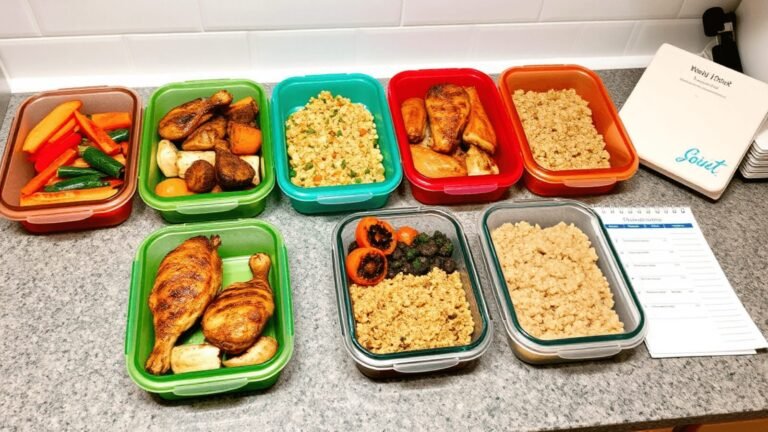
Master meal preparation as you go. It saves you so much time and keeps you on track with your nutrition by having meals planned and organized for the week. Take one day, like Sunday, and plan out your menus. Imagine those colorful bowls with roasted sweet potatoes, grilled chicken, and steamed broccoli, prepared in containers for your fast lunches. These meals are delicious but also help you toward a very successful week.
Simplicity will save the fresher. It is better to use simple recipes with a minimum quantity of ingredients. It is enough just batch-cooking staples like quinoa or brown rice; it will be the base for multiple meals. You can make one big pot of hearty chili or vegetable soup-verily tasty and rich in protein and fiber. These are great on their own or served with whole-grain bread.
Create variety in your nutrition program so meals are more interesting and do not become boring. Alternate protein sources, such as a week where a good source of protein is turkey and the next week perhaps tofu. Mix different colored vegetables in a salad, like bell peppers, kale, and carrots. Vary your cuisine too, like having an Indian chickpea curry one night and a spicy Mexican black bean bowl the next.
These meal prep strategies will help boost consistency and creativity toward eating, which is the way to long-term success without sacrificing enjoyment. As you welcome this cooking routine into your life, remember-each container that you pack is not just food; it is another step toward your fitness goals.
Easy Recipes for Beginners
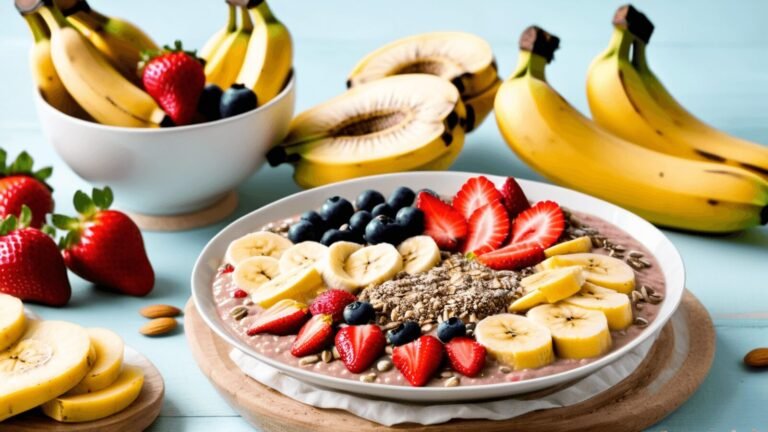
Give your body what it needs in a hurry with delicious breakfast foods. Leave a banana from the previous night in the fridge; blend it well with spinach, and use Greek yogurt to make your smoothie bowl in the morning. Spoon it into a nice bowl and garnish with sliced bananas, strawberries, and Chia seeds, granola. The component in this meal helps muscles recover and gives energy to the workouts.
Afterwards, refuel smart with simple snacks. Have a banana and almond butter sandwich on whole-grain bread or rice cakes to balance the carbohydrates provide energy, while healthy fats support recovery. Alternatively, mix the low-fat cottage cheese with chunks of pineapple-the protein will help your muscles recover, while the pineapple will satisfy your sweet tooth.
Structured meals keep your nutrition on track: try grilled chicken over quinoa with roasted zucchini and bell peppers, drizzled with lemon juice. Have turkey lettuce wraps filled with beans, avocado, shredded carrots, and salsa for a lunch or dinner boost of fiber. Conclude with baked salmon, steamed broccoli, and brown rice to satisfy yourself with a healthy meal.
Diets That Ban Fat
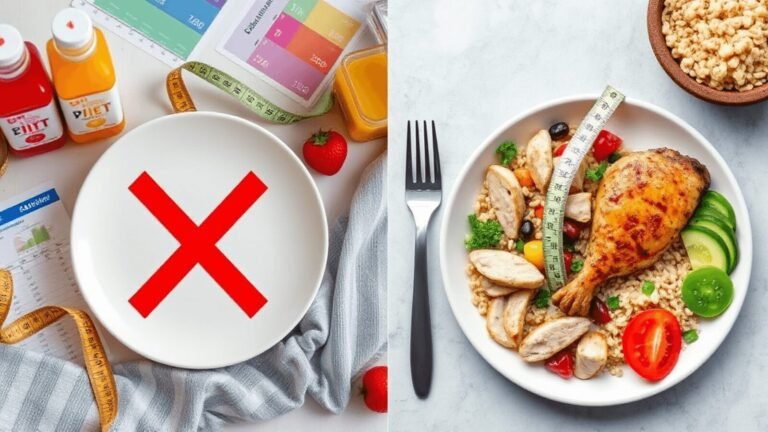
In the modern world, many diets are currently trending, promising swift outcomes, making it difficult to decipher good nutrition guidance. Of all the choices, ‘starvation’ diets such as juice cleanses and high-fat ketogenic may sound tempting, but they trigger unhealthy and unfulfilling eating patterns that are more concerned with a rapid cure rather than holistic well-being. Instead, the best diet is one that meets your personal needs and is based on a solid nutritional foundation, not fleeting fads.
As is the case with any fitness practitioner, it becomes mandatory to eat good food. In contrast to ‘diets’ that negatively restrict choice, sustainable practices instill a positive attitude toward food. The idea here isn’t to eliminate certain food choices as ‘evil,’ which is often the case with regular diets, but rather to describe the kinds of foods that are allowed as nutrient-dense while not denying the occasional indulgence in sweet or processed foods.
This means you do not have to fight the yo-yo effect of diets that are in vogue from time to time. Look at how the foods affect you in terms of energy levels and accomplishments; this will help you make better choices regarding what foods to eat. For instance, you might find that fresh whole-grain quinoa salads will produce better workstation energy boosts than refined snacks. It also helps the muscles as well as the growth of the muscles to have a balanced diet of the micronutrient.
Finally, strive for a moderate, healthy, and absolutely non-restrictive life. Instead of making big changes, opt for making incremental changes because the theme is more likely to work and bring long-term sustainable success without losing the key idea of good food. Have fun discovering how to eat for success with several practical tips on how to develop a proper nutrition plan.
Hydrating Properly: The Key Ingredient
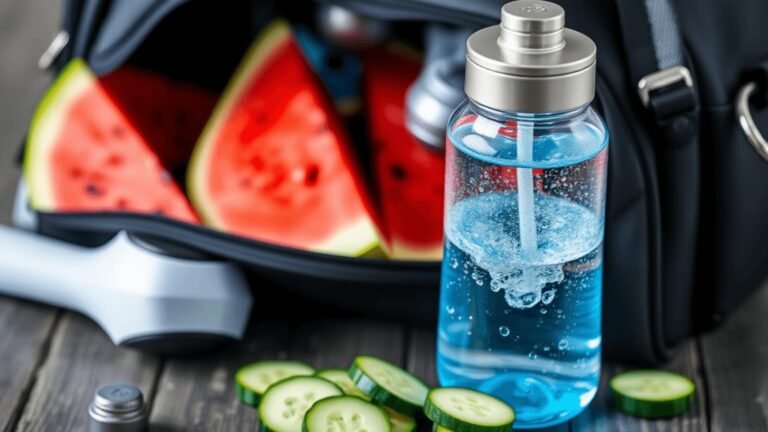
Drinking fluids is critical to flush your system and has a direct impact on your progression and replenishment of the fluids in the body. Solids are embedded in watery liquid, which helps cool, nourish, and digest body substances. When you don’t take enough water, it results in faster exhaustion of your muscles and reduced stamina and concentration levels. Everyone should know that replenishing with water is very likely to be one of the most significant factors in feeding the development of the results produced during workout sessions before, during, and after.
How much water do you intend to take per day?
A good rule of thumb for hydration is to drink at least half your body weight in ounces of water daily. For instance, if you add up to 160 pounds, try to drink around 80 ounces of water. This amount may differ depending on activity, heat, and including unhappiness or sickness. Of course, water intake also means drinking water and getting it from foods that have high water content, such as cucumbers, watermelon, and so on.
The timing of water consumption is very important. You should begin by taking 500-1000ml of water two hours prior to the time you intend to start exercising. If higher or more severe intense exercises are to be performed or executed in hot weather, electrolyte drinks are to replace shed salts and preserve water balance. In the post-exercise period, you need to replace the fluids within an hour; 16-24 ounces will help with muscle recovery.
Conclusion: The journey to the world of Nutrition Mastery
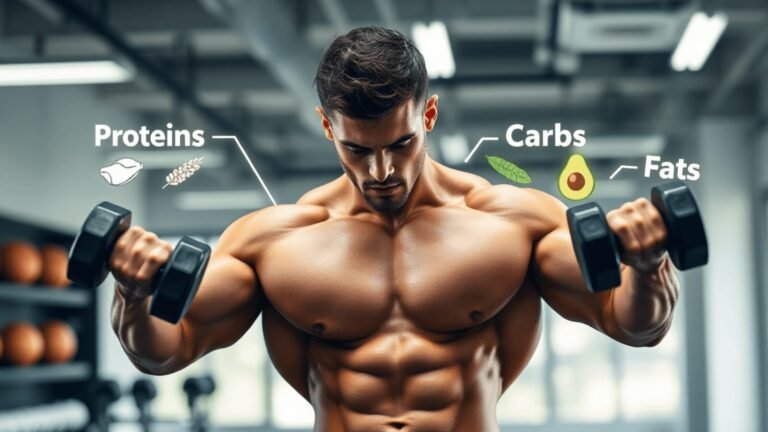
This is the one that any dumbbell lifting beginner has to know in order to upgrade her skills and muscles. Knowledge of proteins, carbohydrates and fats is a basic knowledge that should be understood by any fitness training program. Include high-quality meats through lean sources, use good complex carbohydrates to replenish energy, and incorporate good fats for hormone recovery and synthesis. This Nutrition Guide for Beginner Bodybuilders gives you these facts to help you make these choices successfully.
When engaging in your routines, remember that even the slightest of improvements could make a huge difference. Therefore, always take it a step further when using these tips to increase your nutritional value. While setbacks may occur, with the right knowledge and preparation from the Nutrition Guide for Beginner Bodybuilders, you can overcome them. In addition, each meal serves as fuel for your growth, and your goals are within reach.
